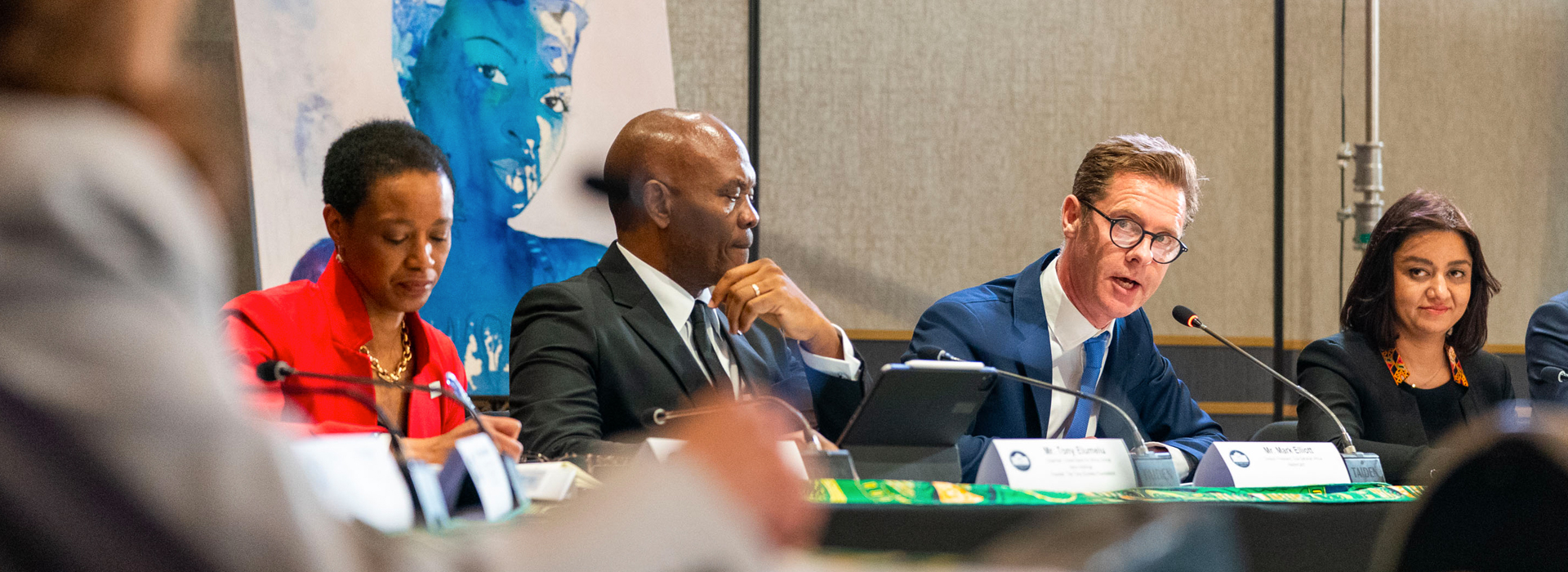Leading the way in digital and financial inclusion in Africa
July 31, 2023 | By Mark Elliott
In April 2023, public and private sector leaders from across Africa joined US Vice President Kamala Harris in the Zambian capital Lusaka at a roundtable aimed at identifying opportunities to close the digital divide on the continent. Mastercard was invited to the table because of its proven track record in driving financial inclusion, which was at the center of the discussions.
A lot has been said about Africa’s potential to embrace digitization. Yet, digitization has not reached the poorest, typically rural communities across Africa.
As many as 60% of individuals still lack internet connectivity. Even more alarmingly, 40% have no form of ID. Governments and companies must implement a digital infrastructure and digital tools that work in the context of these communities. Africa’s greatest opportunity is in its ability to harness digital advances to benefit everyone.
As part of its pledge to connect one billion people worldwide to the digital economy by 2025, Mastercard is building partnerships with public and private sector entities as well as NGOs to develop, incubate and scale locally relevant digital solutions.
A prime example of an effective solution in this space is Mastercard’s Community Pass, a shared digital platform that works offline and addresses infrastructure challenges faced by rural communities. These include unreliable connectivity, low smartphone ownership and lack of consistent identification or credentials.
Having enabled 2.4 million individuals in Africa – mostly smallholder farmers – to participate in the digital economy, Community Pass has emerged as a successful model of digital and financial inclusion that serves as a benchmark for the whole continent. Mastercard is committed to reaching 15 million individuals in Africa by 2027.
Community Pass is built on the company’s core competency – digitizing and securing transactions. It equips people with a unique digital ID, making them visible to buyers who want to procure their offtake, governments who want to give subsidies and banks who want to lend. Mastercard provides the technology, and together with its network of partners, it enables individuals to get paid more and faster.
To establish a pan-African digital infrastructure, we must continue building a robust shared digital ecosystem. By leveraging common digital rails, we can bring down the cost to an affordable level for everyone and ensure best-in-class data privacy and protection principles are adopted by all stakeholders, even the smallest businesses.
We must also define the commercial terms to ensure long-term viability. According to the UN, Africa boasts a 2.7-trillion-dollar market opportunity – the largest driver of business growth worldwide. However, in the short term, we need to crowd in donors and investors to catalyze uptake.
Finally, we must work with local governments to develop national digital and financial inclusion strategies that bring together regulators and the private sector.
